
In the quest to understand the complex and multifaceted nature of love, the wisdom of ancient philosophers offers timeless insights. “Stoic Quotes on Love” is a collection that delves into the profound thoughts of Stoic philosophers like Seneca, Epictetus, and Marcus Aurelius, as well as the reflective words of thinkers like Lao Tzu, Plato, Ralph Waldo Emerson, and Peter Ustinov.
These quotes not only explore love’s spiritual and emotional dimensions but also its practical applications in our daily lives. From Seneca’s depiction of love as a “spiritual fire” to Epictetus’ assertion that true love is within the power of the wise, each of these stoic quotes presents a unique perspective about the role of love in the human experience. These ancient words, though centuries old, continue to resonate with their timeless wisdom, revealing the depth, complexity, and transformative power of love.
Let’s get started.
“Love in its essence is spiritual fire.”
Seneca
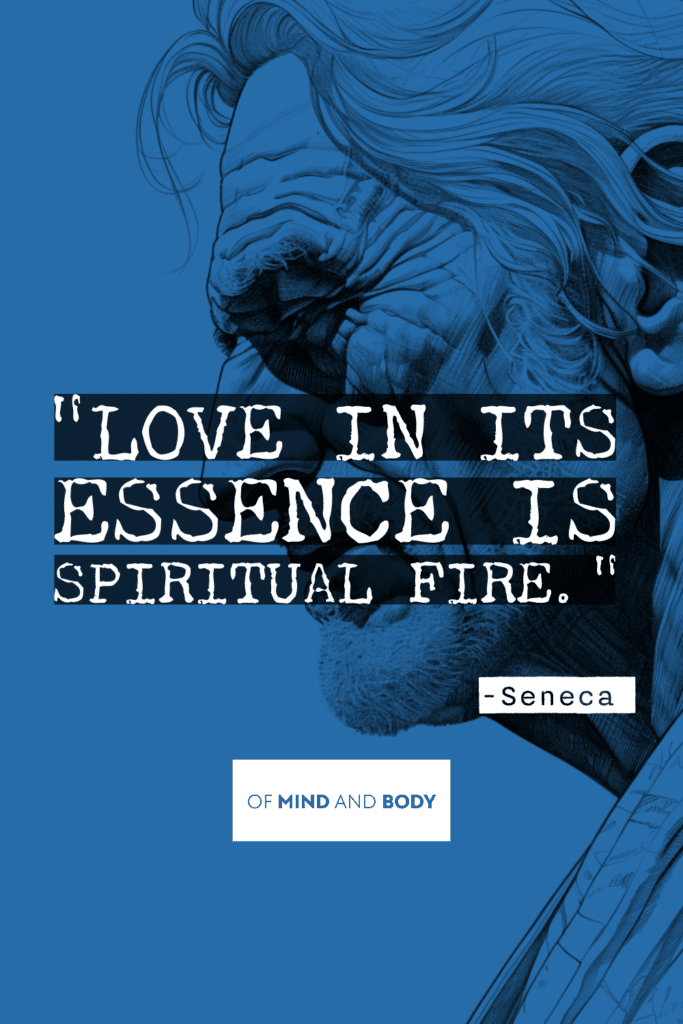
The Wisdom Behind the Words:
Seneca, a prominent Stoic philosopher, presents love as a transcendent and transformative force. The metaphor of “spiritual fire” suggests that love, in its purest form, has the power to illuminate, warm, and change the soul. It’s not merely an emotion or a physical sensation, but rather a deep, spiritual experience that ignites passion, inspiration, and growth within us. This quote reminds us that love is not passive; it’s an active, dynamic force that shapes our inner being.
Everyday Applications:
To apply this wisdom, recognise the transformative power of love in everyday interactions. Approach relationships with the intent to enlighten and uplift, not just to seek personal fulfilment. Let your love be a source of inspiration and positive change in the lives of others. When you engage with loved ones, do so with the full warmth and energy of your being, as if stoking a spiritual fire within yourself and them.
“I shall show you a love potion without a drug, without a herb; without the incantation of any sorceress: if you want to be loved, love.”
Seneca
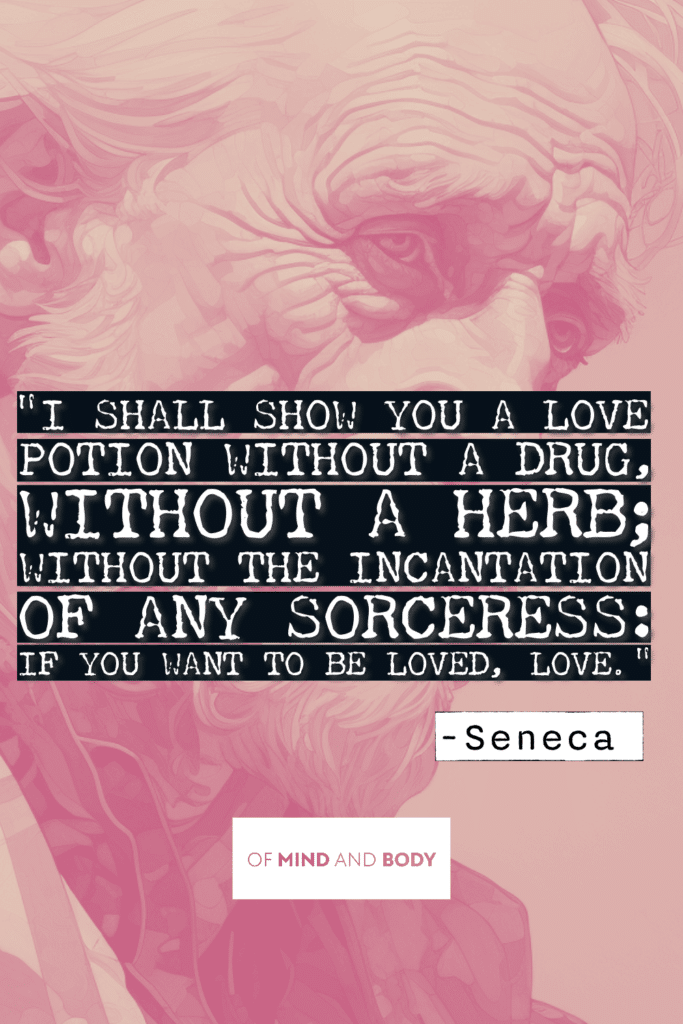
The Wisdom Behind the Words:
Here, Seneca proposes a simple yet profound formula for love. He dismisses the need for external aids or magical solutions to win love. Instead, he suggests that the act of loving itself is the most powerful catalyst for being loved. This quote underlines the principle of reciprocity in human relationships, indicating that the love we give often mirrors the love we receive.
Everyday Applications:
Apply this principle by taking the initiative in showing love and kindness without waiting for others to do so first. Whether it’s with family, friends, or even strangers, approach them with genuine care and affection. Remember, love is not just in grand gestures, but often in the small acts of kindness and understanding. By actively loving, you create an environment where love flows back to you.
“Whoever then understands what is good, can also know how to love; but he who cannot distinguish good from bad, and things which are neither good nor bad from both, can he possess the power of loving? To love, then, is only in the power of the wise.”
Epictetus
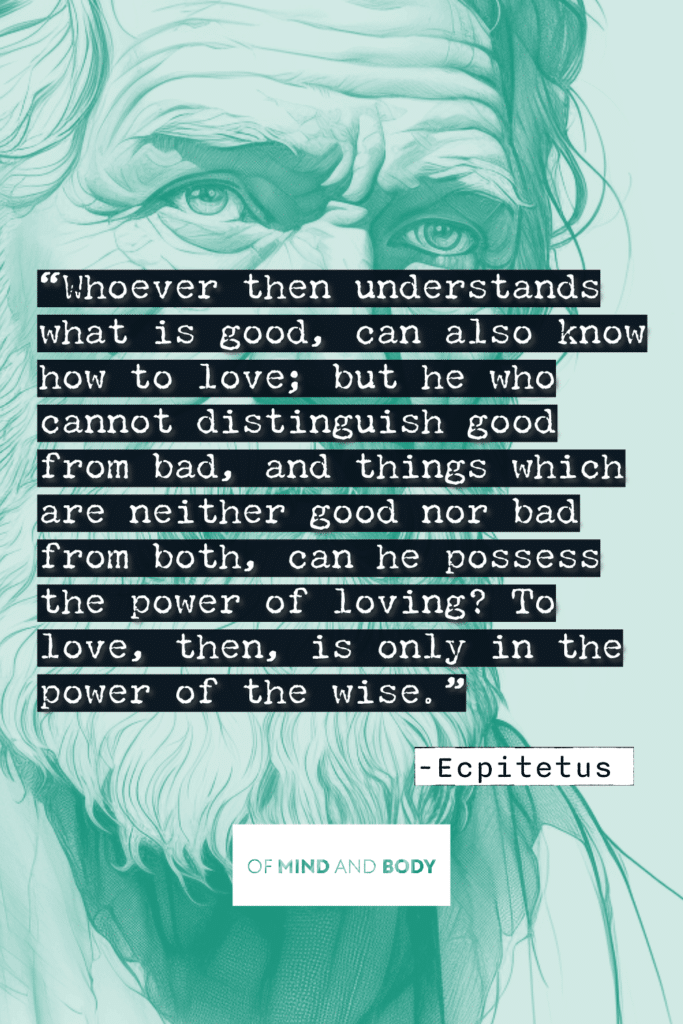
The Wisdom Behind the Words:
Epictetus emphasises the connection between wisdom and love. He suggests that truly understanding love requires discernment and wisdom – the ability to recognise what is truly good, bad, or indifferent.
This quote implies that love is not merely a feeling, but a conscious choice guided by a deep understanding of what is truly beneficial and valuable in life.
Everyday Applications:
Practically, this means cultivating wisdom and discernment in your daily life. Make choices that reflect your deepest values and understanding of what is truly good. In relationships, this wisdom translates to loving in ways that are healthy and beneficial, rather than destructive or self-serving. Love with clarity and purpose, knowing that true love is aligned with the good in life.
“The wise man loves, but he loves only what is in his power.”
Epictetus
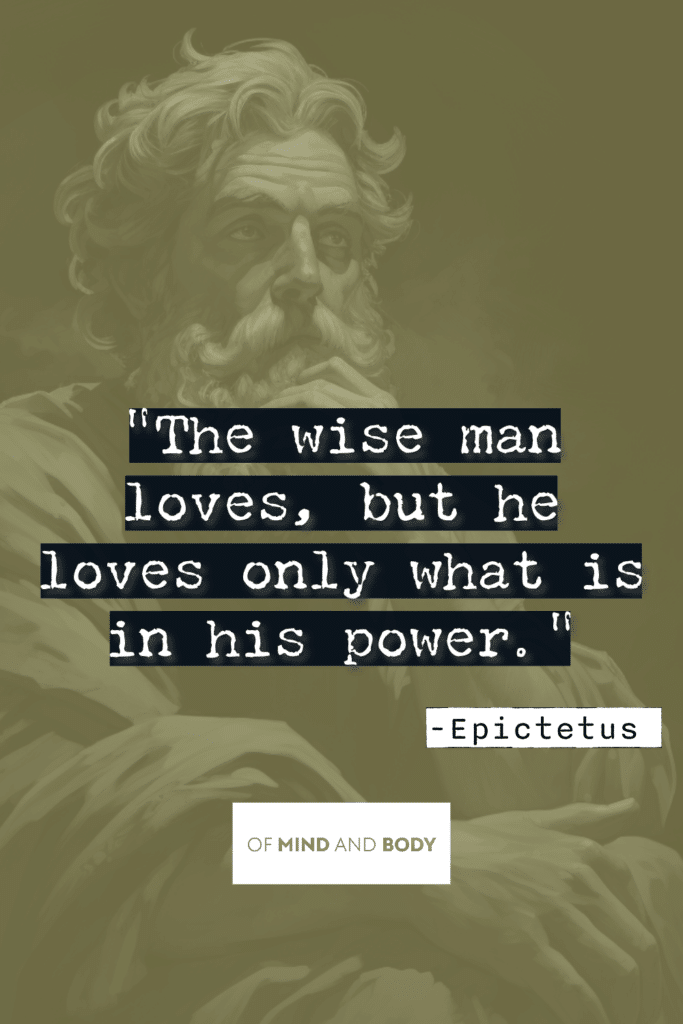
The Wisdom Behind the Words:
Epictetus presents a pragmatic view of love. He advises that wise love is about understanding and accepting the limits of our control. This quote teaches us to invest our emotional energies wisely, loving what and whom we can truly influence or affect, rather than pining for the unattainable or lamenting over what is beyond our control.
Everyday Applications:
In everyday life, this means focusing your love and attention on areas where you can make a real impact. It’s about nurturing relationships that are within your sphere of influence and accepting the nature of those that aren’t. Love actively and intentionally, but also with the wisdom to let go of what you cannot change or control.
“Accept the things to which fate binds you, and love the people with whom fate brings you together, but do so with all your heart.”
Marcus Aurelius
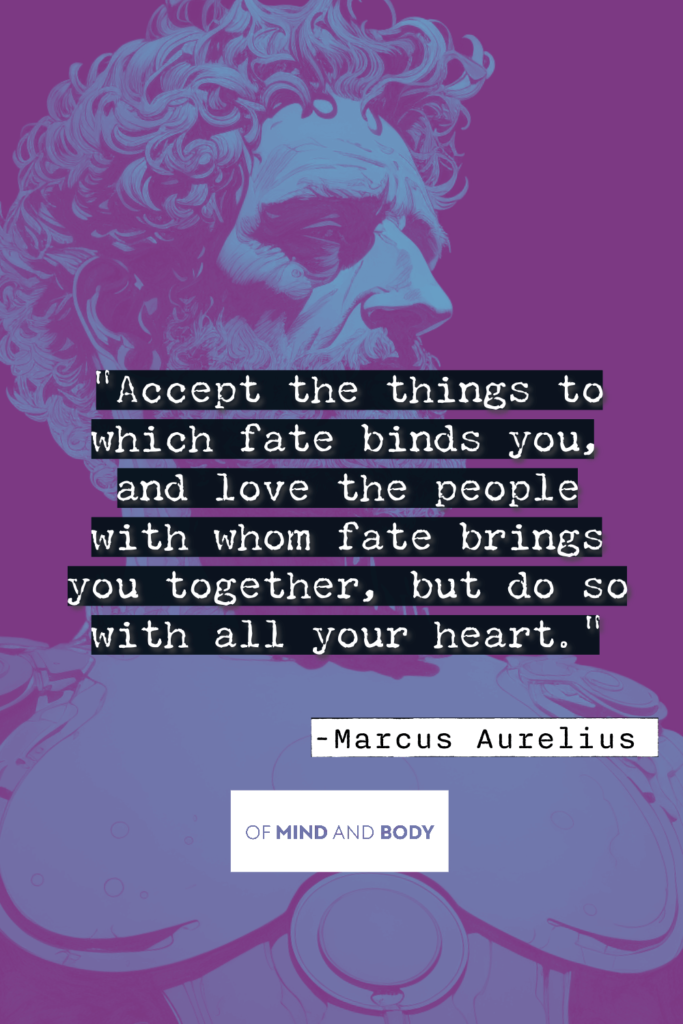
The Wisdom Behind the Words:
Marcus Aurelius through his quotes speaks the Stoic acceptance of fate, while also emphasising the importance of wholehearted love. These words suggests that while we may not choose every circumstance or person in our lives, we can choose to embrace them with love and compassion. It’s a call to find love in the given, rather than constantly seeking it in the elusive.
Everyday Applications:
Apply this wisdom by embracing the relationships and circumstances you find yourself in. Whether it’s family, colleagues, or even challenging acquaintances, approach them with an open heart. Look for opportunities to show love and kindness in your existing environment, rather than always seeking it elsewhere.
“When you arise in the morning, think of what a precious privilege it is to be alive – to breathe, to think, to enjoy, to love.”
Marcus Aurelius
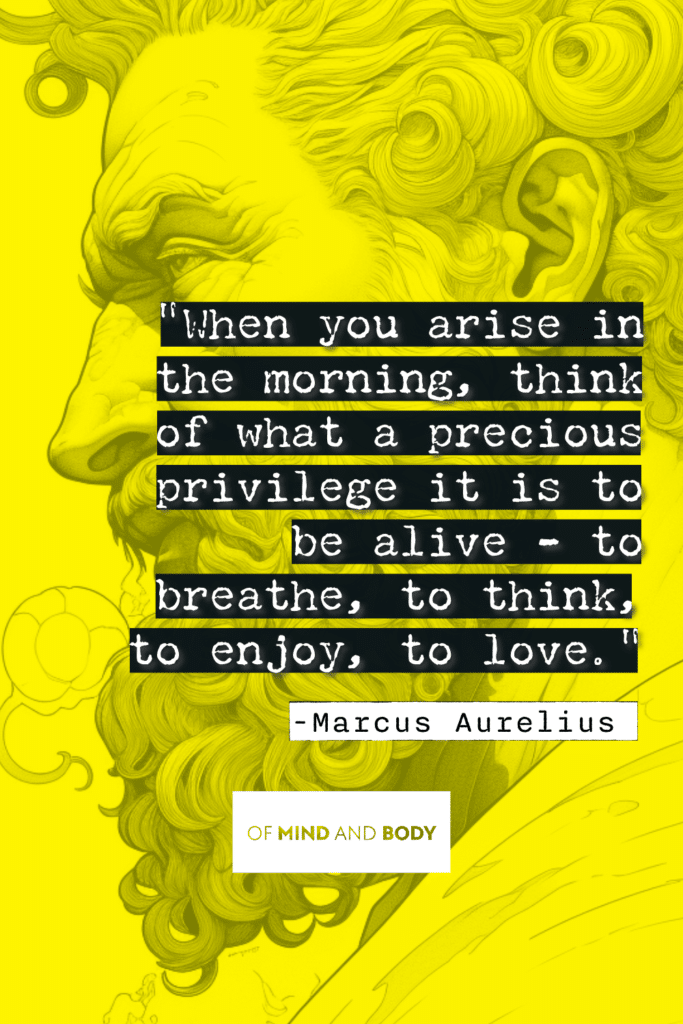
The Wisdom Behind the Words:
Marcus Aurelius here reminds us of the fundamental blessings of life, including the ability to love. He emphasises gratitude and mindfulness, suggesting that each day is a precious opportunity to experience and express love. With his quotes he invites us to see love not as a given, but as a privilege, a vital part of the Stoic and human experience that enriches our existence.
Everyday Applications:
Begin each day with a sense of gratitude, particularly for the capacity to love and be loved. Take moments throughout your day to appreciate your relationships and express your affection. Whether it’s a simple act of kindness, a warm gesture, or spending quality time with loved ones, let love be a conscious and joyful part of your daily life.
“He who loves the world as his body may be entrusted with the empire.”
Lao Tzu
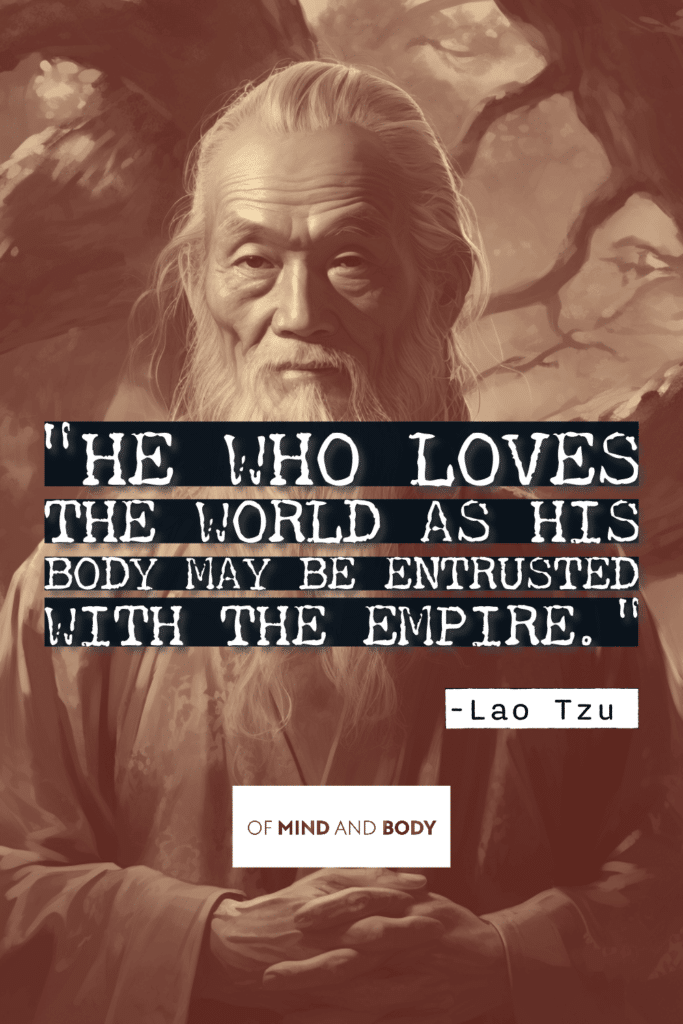
The Wisdom Behind the Words:
Lao Tzu, a central figure in Taoism, draws a parallel between self-love and the love of the world. The quote suggests that when we cherish the world as deeply as we do our own bodies, we attain a level of wisdom and responsibility that makes us capable of great leadership and stewardship. This wisdom is about extending our compassion and care beyond ourselves to the larger world.
Everyday Applications:
Practically, this means nurturing a deep respect and love for the environment, society, and the global community. Act responsibly and thoughtfully, as if the well-being of the world directly impacts your own. Make choices that are considerate of others and the planet, understanding that love extends beyond personal boundaries.
“One word frees us of all the weight and pain in life, that word is Love.”
Sophocles
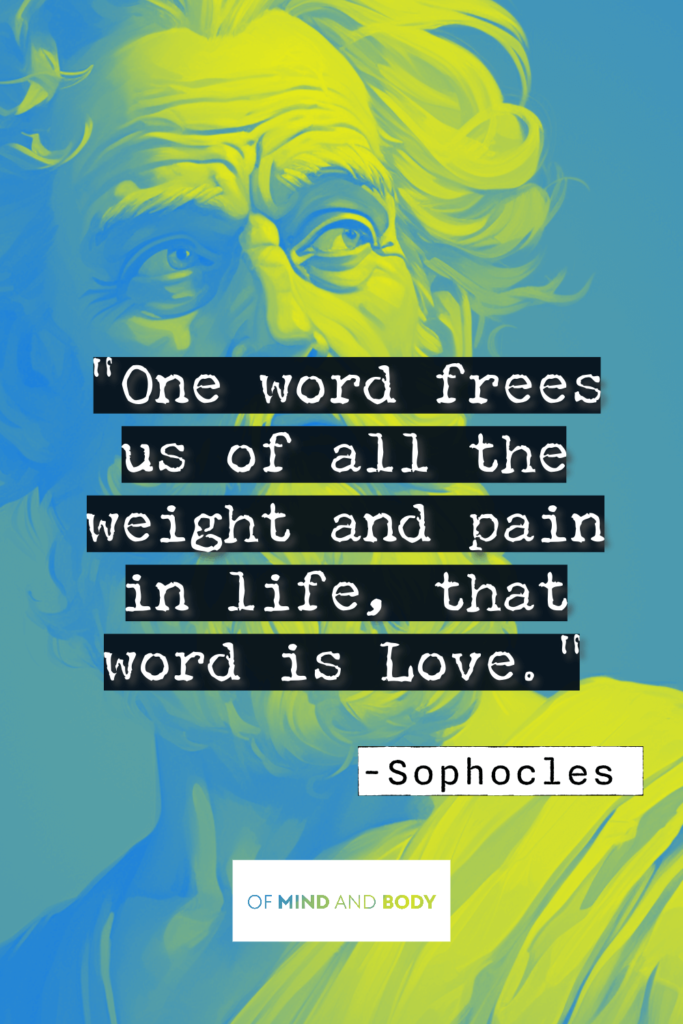
The Wisdom Behind the Words:
Sophocles, the ancient Greek playwright, identifies love as a liberating force, capable of alleviating life’s burdens and pains. These quotes acknowledges the hardships of life but offers love as a powerful antidote that can bring about lightness, joy, and relief. It underscores the healing and transformative power of love.
Everyday Applications:
In your daily life, turn to love as a source of comfort and strength in difficult times. Offer love to others who are struggling, and allow yourself to receive love when you need it. Remember that sometimes, the simple act of loving or being loved can make the heaviest burdens feel lighter.
“Love is the joy of the good, the wonder of the wise, the amazement of the gods.”
Plato
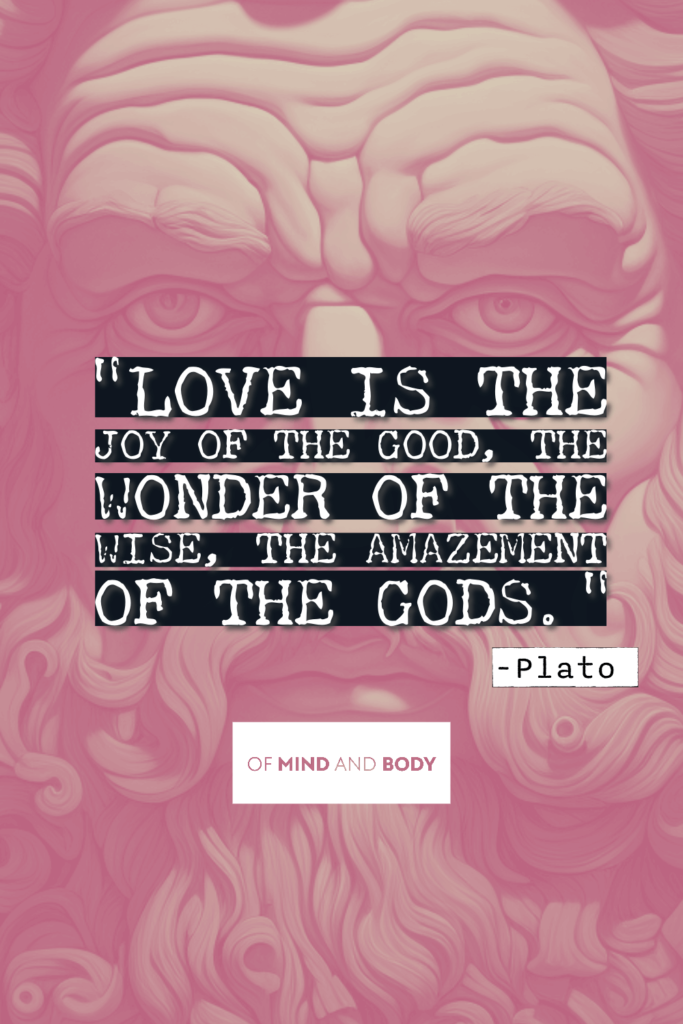
The Wisdom Behind the Words:
Plato, one of the most influential philosophers, describes love as a multi-dimensional experience that brings joy, wonder, and amazement. This quote speaks to the depth and complexity of love, suggesting that it is something to be revered and marvelled at, a force that even the gods find astonishing. It’s a reminder of the extraordinary nature of love in human life.
Everyday Applications:
Embrace the full spectrum of love in your life. Find joy in simple acts of affection, wonder in the deep connections you share with others, and amazement in the profound impact love can have. Treat your loving relationships with the reverence and awe they deserve, celebrating the miraculous ways in which they enrich your life.
“The madness of love is the greatest of heaven’s blessings.”
Plato
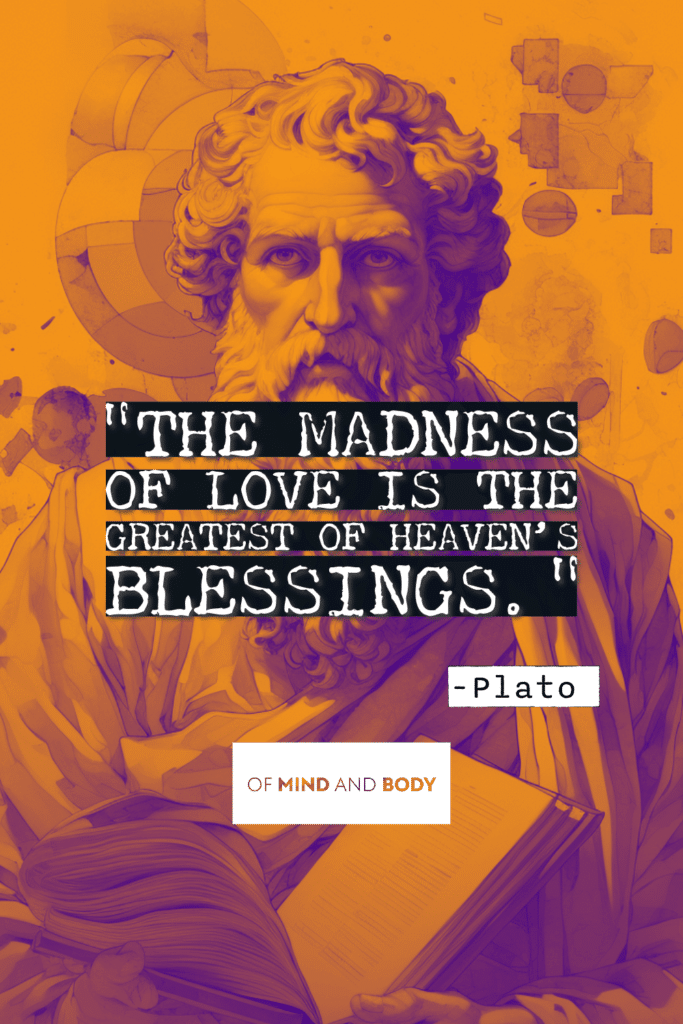
The Wisdom Behind the Words:
In this quote, Plato acknowledges the intense and sometimes irrational nature of love, but rather than viewing it as a weakness, he celebrates it as a divine blessing. The “madness” of love here is seen as a positive, life-affirming force, a passionate and uncontrolled aspect of love that brings vitality and joy.
Everyday Applications:
Allow yourself to experience the passionate and unrestrained aspects of love. Be open to the moments of intense affection and deep emotional connections. Don’t be afraid to express your love freely and enthusiastically. This kind of love can invigorate and inspire both you and those around you.
“He whom love touches not walks in darkness.”
Plato
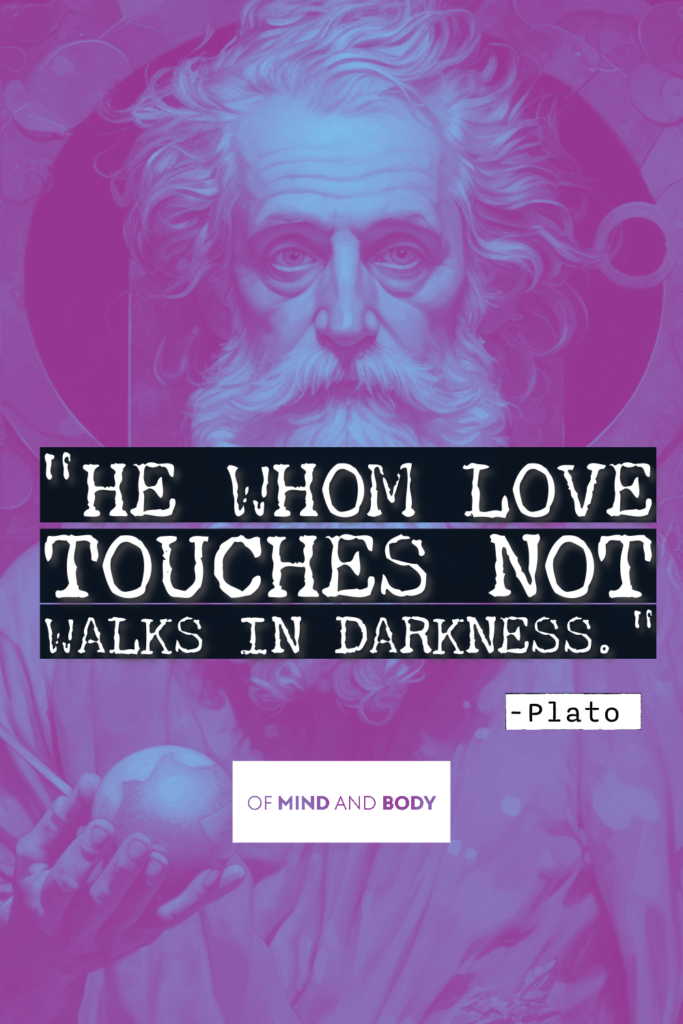
The Wisdom Behind the Words:
Plato here suggests that love is a guiding light in our lives. Without it, one is metaphorically walking in darkness, lacking direction and warmth. This quote underscores the vital role of love in illuminating our experiences and giving meaning to our existence. Love is portrayed not just as an emotion, but as a necessary element for a fulfilled and enlightened life.
Everyday Applications:
Seek to incorporate love in all its forms into your daily life. Let love guide your decisions, actions, and interactions. Cultivate love in your relationships, passions, and endeavours. Recognise that love, in its many manifestations, can provide clarity and purpose, lighting up the path you walk.
“The reason why all men honour love is because it looks up, and not down; aspires and not despairs.”
Ralph Waldo Emerson
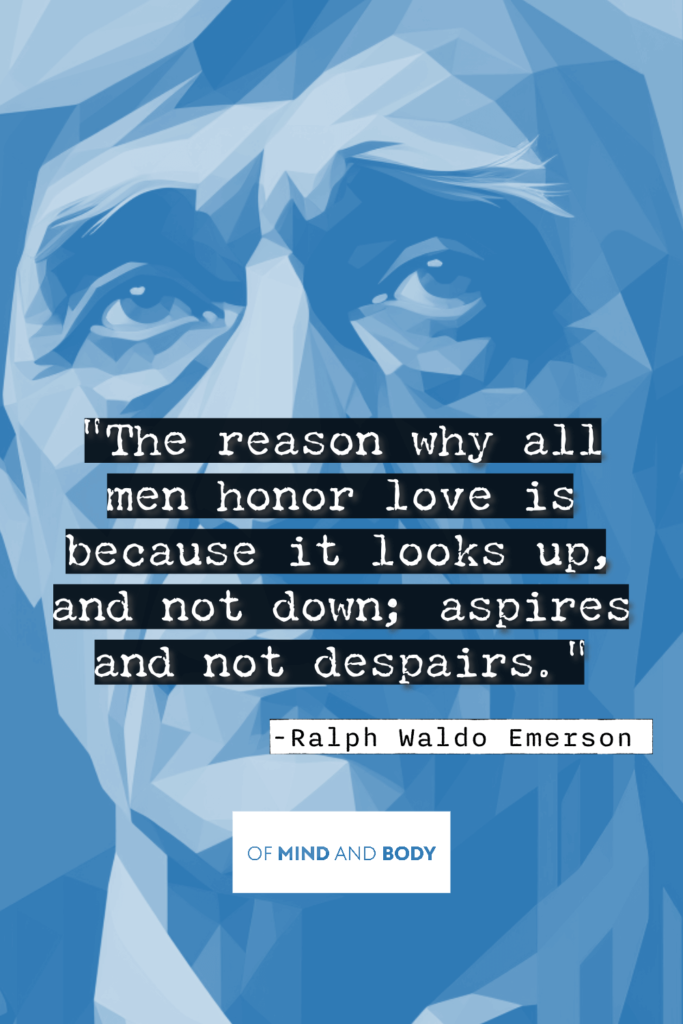
The Wisdom Behind the Words:
Emerson highlights the aspirational nature of love. Love is honoured because it is inherently optimistic, always looking upwards, aiming for growth and improvement. This quote presents love as a force that encourages us to rise above our current circumstances and strive for better, avoiding despair and negativity.
Everyday Applications:
Approach love with an aspirational mindset. In your relationships, aim to uplift and inspire, to look towards a brighter future together. Use love as a tool to overcome challenges and setbacks, focusing on potential and growth rather than despair.
“Love, and you shall be loved.”
Ralph Waldo Emerson

The Wisdom Behind the Words:
Emerson speaks to the reciprocal nature of love. This simple yet profound statement suggests that giving love is the key to receiving it. It implies a fundamental law of human interaction, where love begets love, creating a cycle of affection and warmth.
Everyday Applications:
Be proactive in showing love to those around you. Understand that by opening your heart and offering your love, you are more likely to attract love in return. Practice kindness, empathy, and generosity in your interactions, and watch as these actions foster a loving environment around you.
“Love is an act of endless forgiveness, a tender look which becomes a habit.”
Peter Ustinov
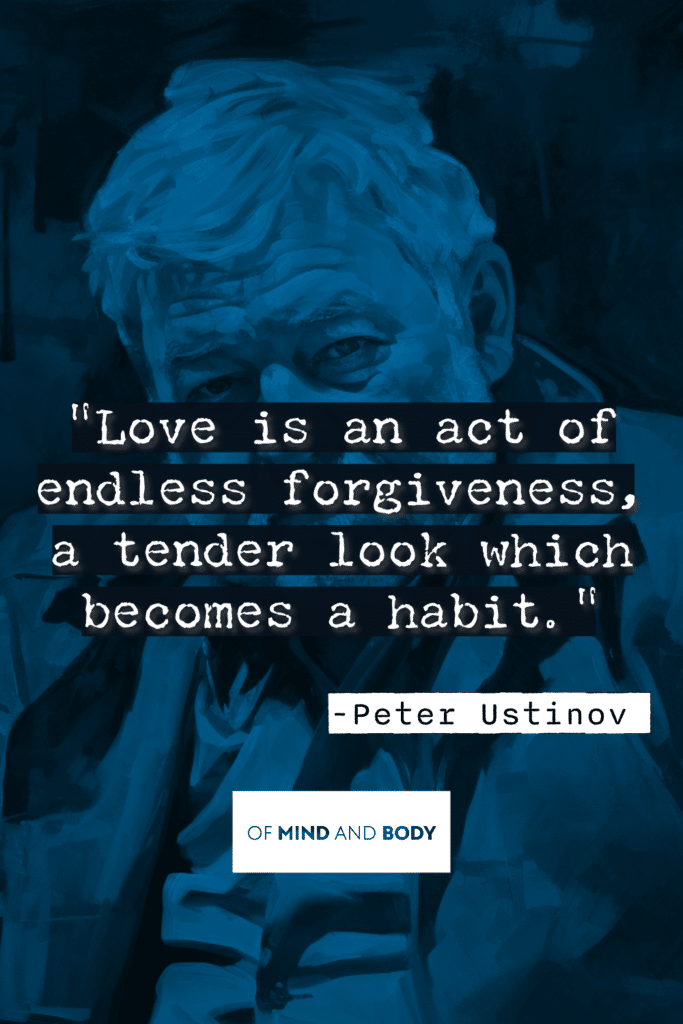
The Wisdom Behind the Words:
Peter Ustinov emphasises the forgiving and gentle nature of love. He portrays love as a continuous act of forgiveness and kindness, suggesting that love is not just a feeling but a consistent practice of understanding and compassion. This quote reminds us that love involves patience and the willingness to see the best in others.
Everyday Applications:
Embrace forgiveness as a key component of your loving relationships. Understand that mistakes and misunderstandings are part of human interaction, and approach them with kindness and a willingness to forgive. Make compassion and tender understanding habitual in your interactions with loved ones.
Final Thoughts
We hope this journey through the wisdom and quotes of the ancients has inspired you to think more deeply about love in your own life. But this is just the beginning. Our website is a treasure trove of articles that delve into various aspects of life, mental health, and personal growth.
We invite you to continue your exploration with us, to uncover more insights and inspirations that can illuminate your path to a more fulfilling and enlightened life. Join us in this continuous quest for wisdom, understanding, and the art of living well.
If you’ve enjoyed this article, why not try one of our other collections of Stoic Insights linked below:
As we reflect on these timeless Stoic quotes on love, we are reminded of the enduring wisdom that has traversed through centuries, still relevant and deeply resonant in our modern lives. Each these Stoic quotes serves as a beacon, guiding us through the complexities of love and relationships with insights that are both profound and practical.


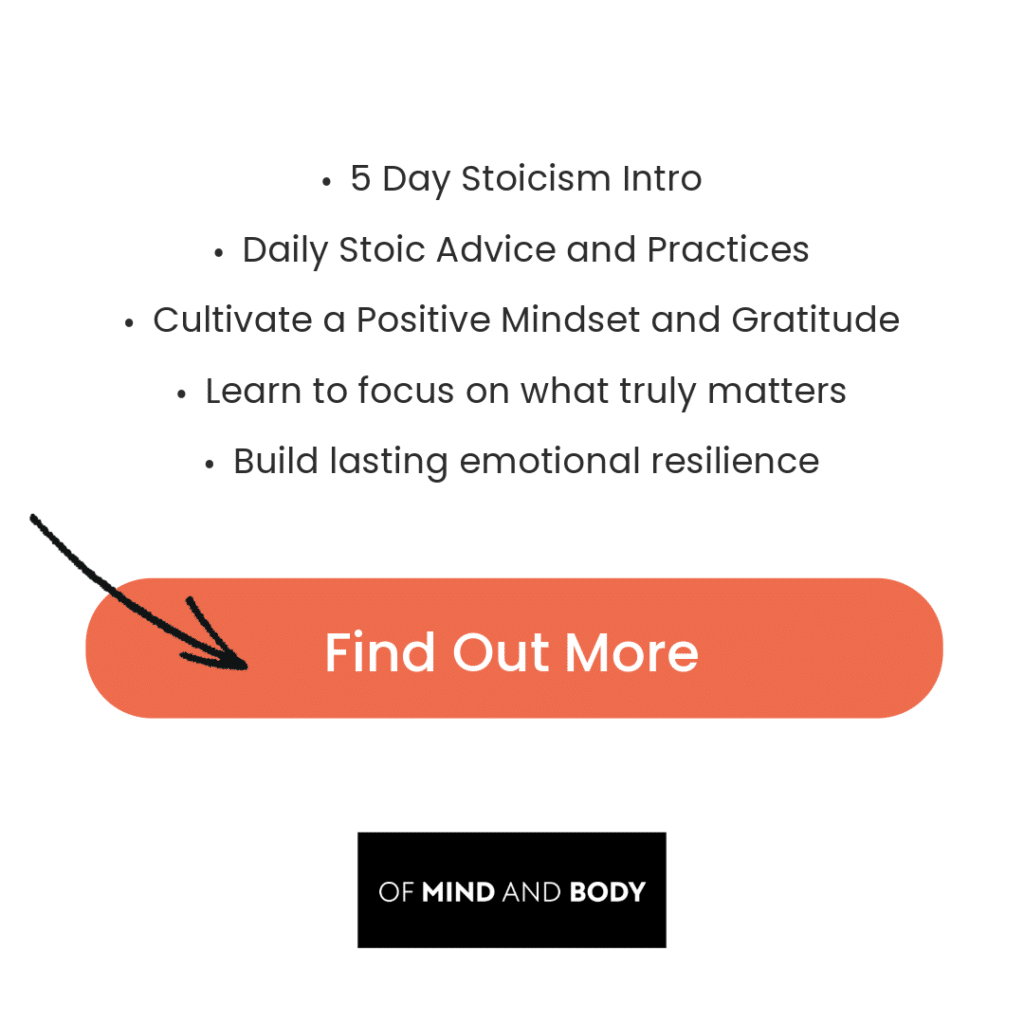


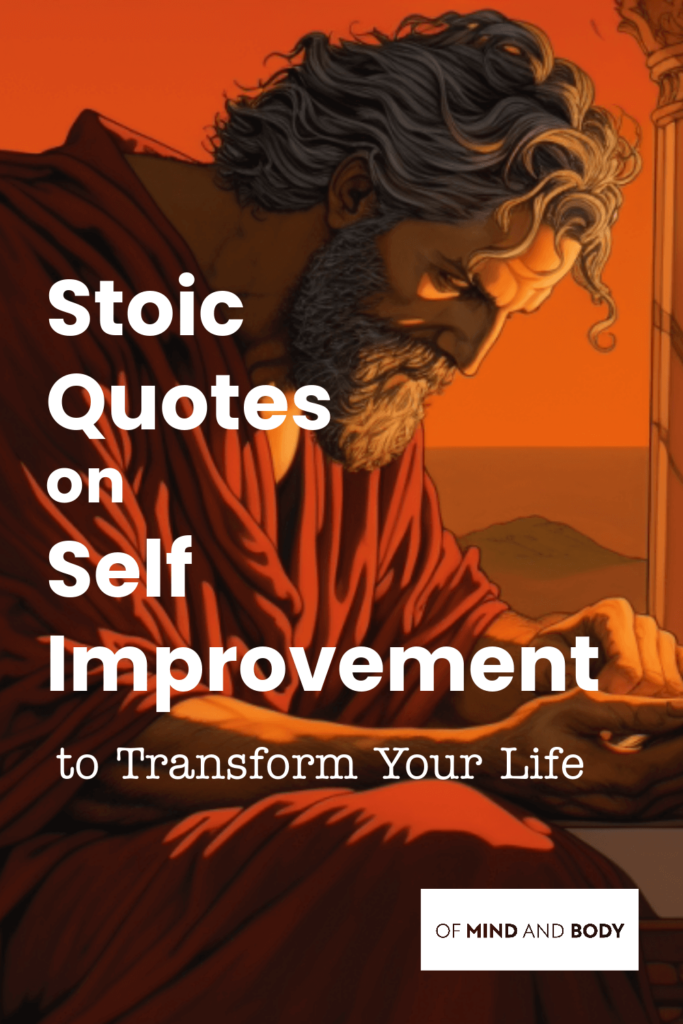
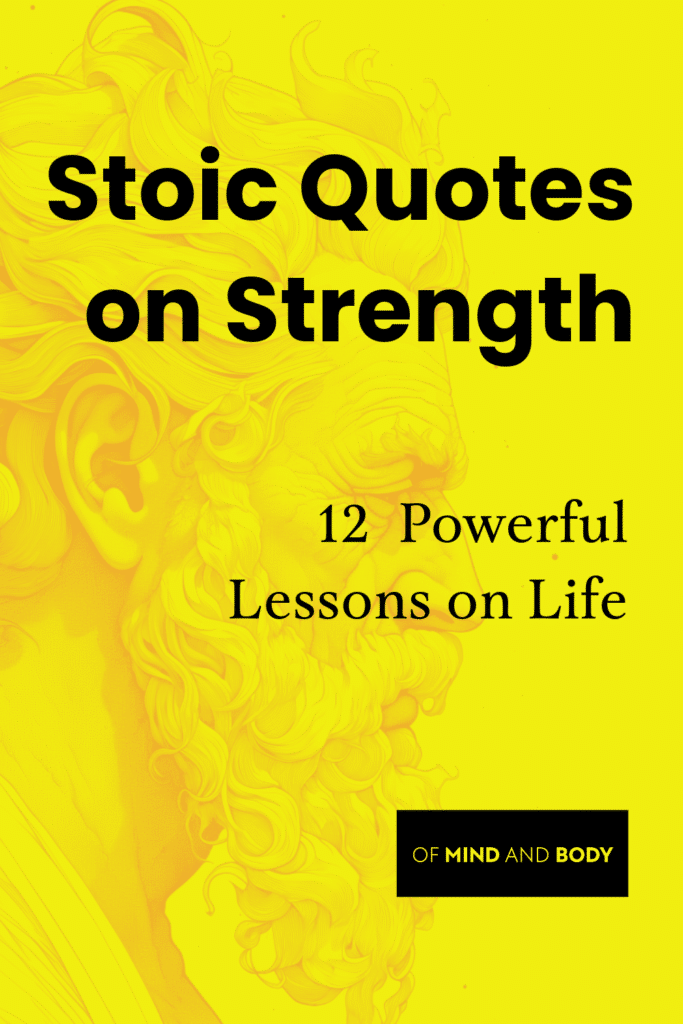
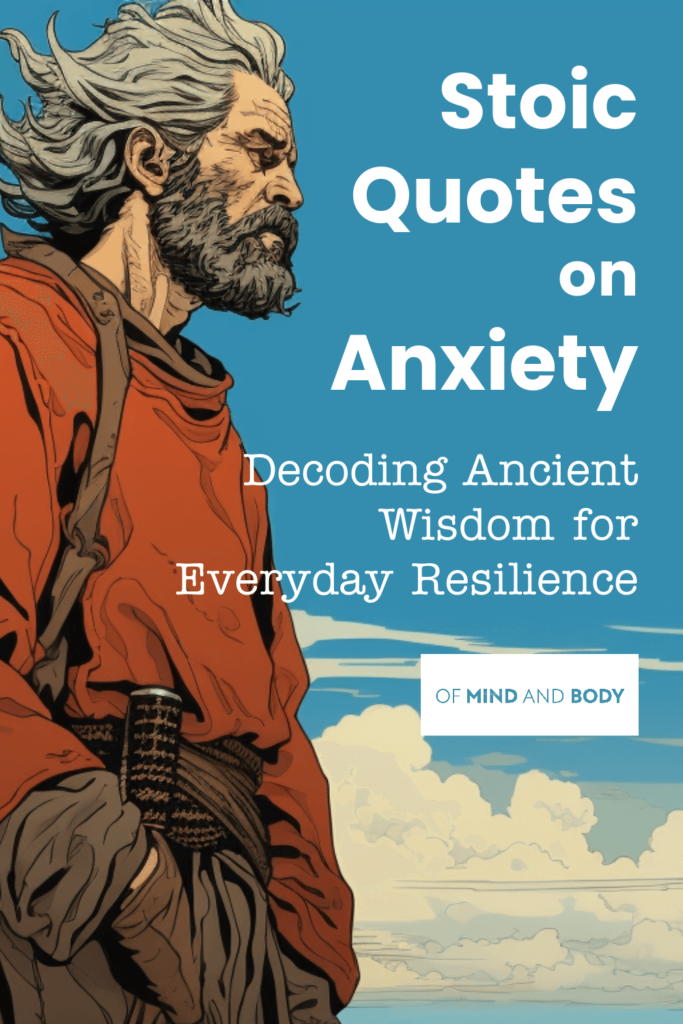

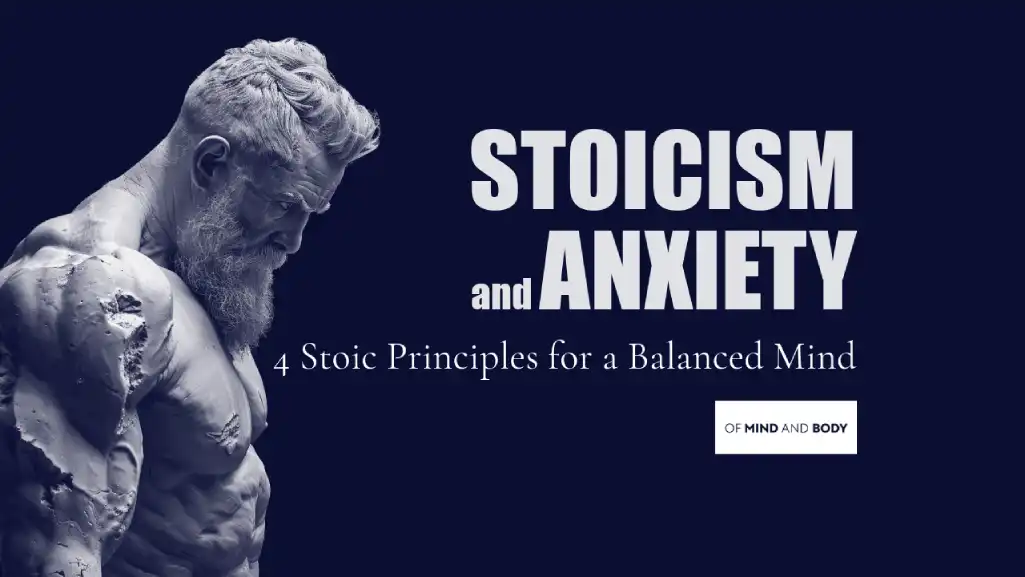
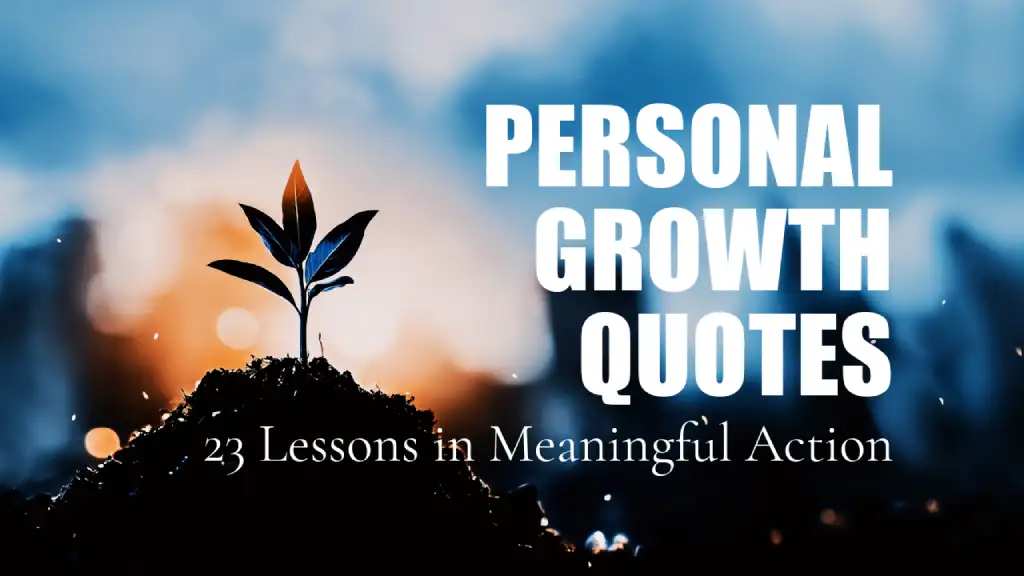

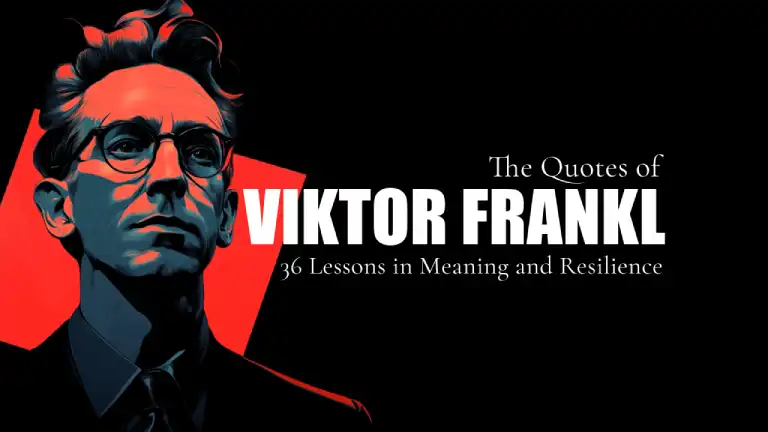
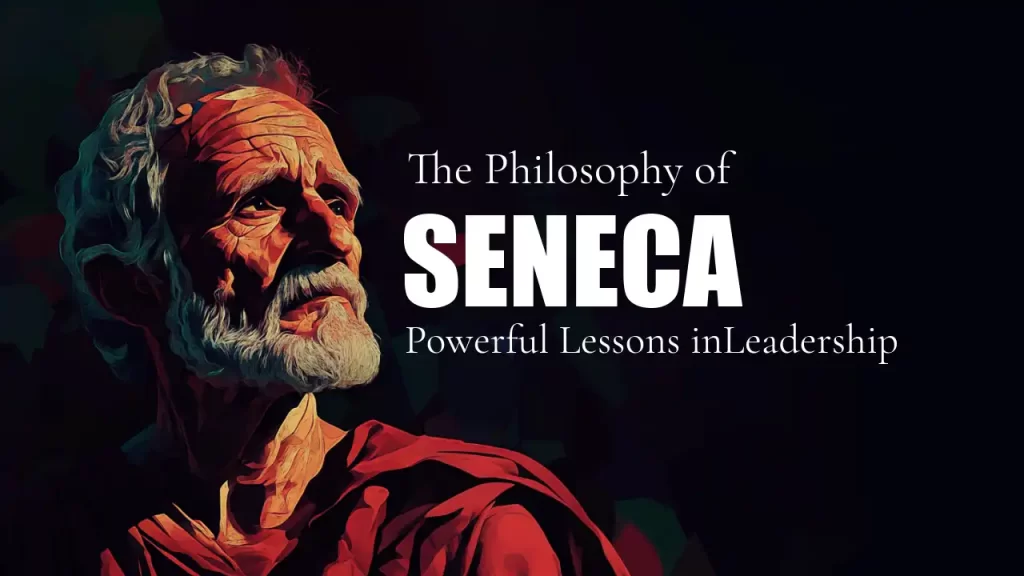
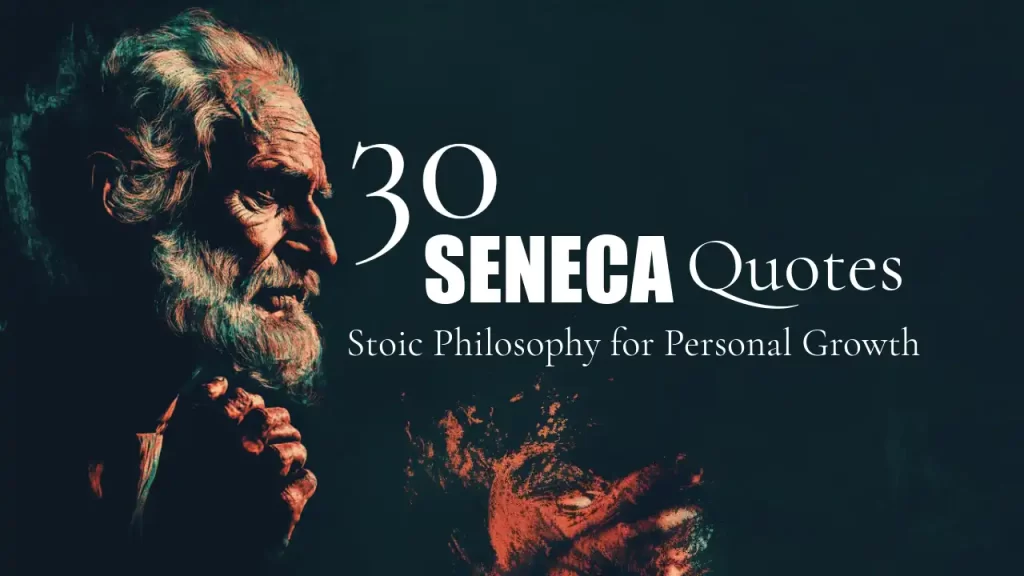


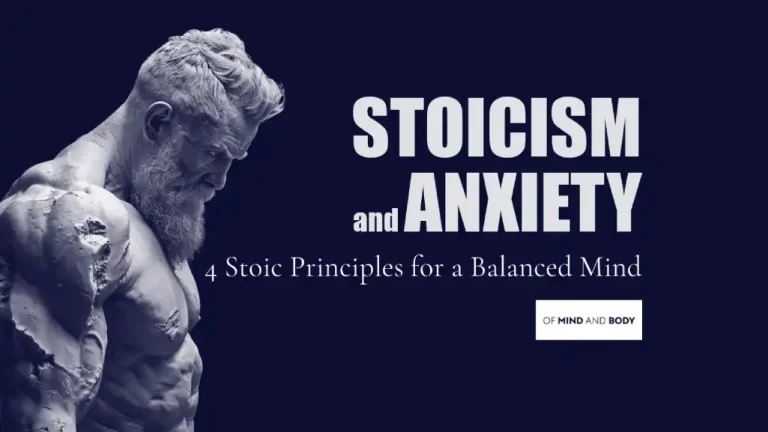
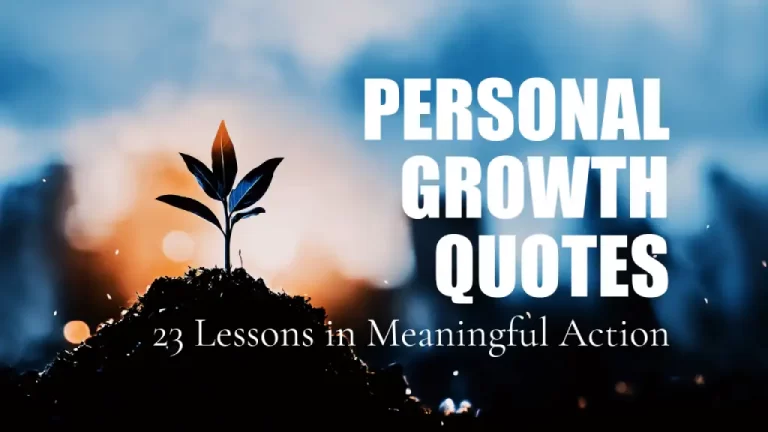

One Response